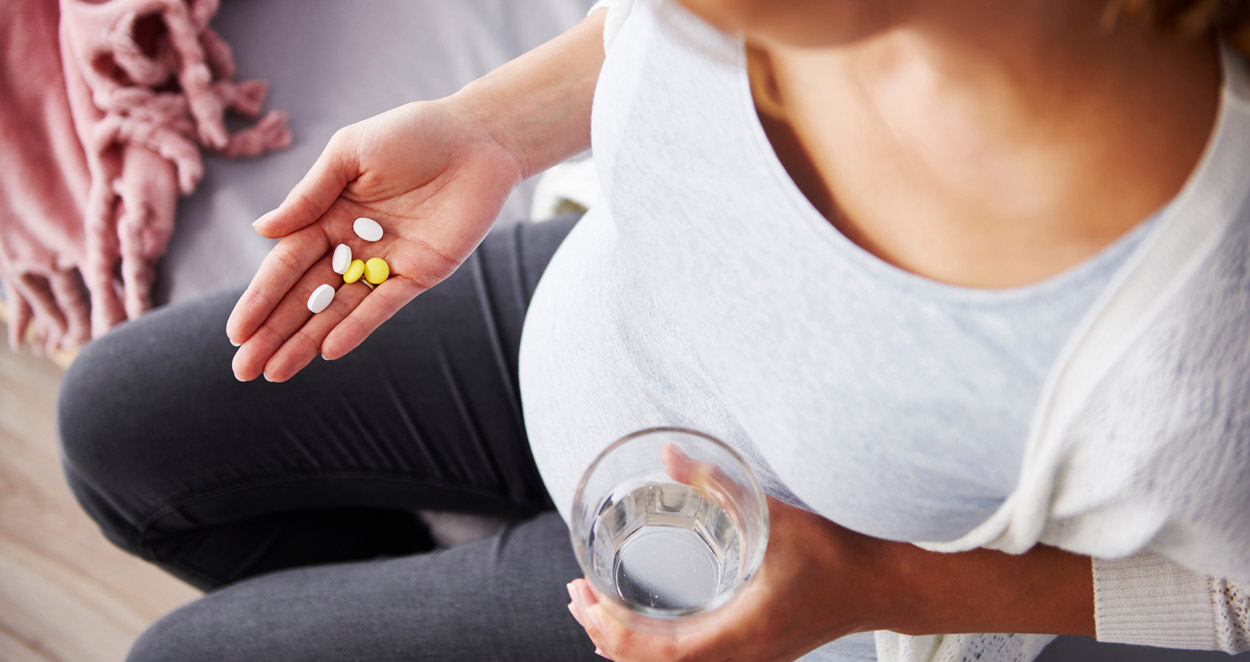Vitamins and minerals during pregnancy

22 Aug 2019
All nutrients are important, but if you are an expecting mom, some are more important than others. But with so many different ones out there, how do you know you are taking the right ones, and how much of each should you be taking?
Calcium
Calcium is responsible for the growth and development of your baby’s bones and teeth, and so it is recommended that you have between 900 – 1000mg of calcium each day. To put it into perspective, this is roughly around three-quarters of a litre of milk. This is not to say that you need to stock up on milk. There are plenty of foods out there that are rich in calcium.
Some calcium-rich foods include spinach, eggs, green beans, broccoli and sardines.
Vitamin D
Vitamin D and calcium go hand-in-hand because Vitamin D helps your body absorb the calcium.
You need around 600 IU of vitamin D each day. You can get this from eating fish or simply getting a couple of minutes of sun each day. Don’t forget to still put on sunscreen.
Folic acid
This is one of the most important vitamins you should be getting during pregnancy. Folic acid, also known as Vitamin B9, is important for your baby’s brain and spinal cord development. Getting enough folic acid each day reduces the risk of your baby being born neural tube defects.
It’s recommended that you have 400 mcg of folic acid each day before pregnancy (if you are planning on falling pregnant) and through the first 12 weeks of pregnancy, then 600 mcg of folic acid daily after the first 12 weeks up until the birth.
Much like calcium, you can find folic acid green veggies like broccoli, spinach and green cabbage.
Iron
Iron helps your body make more blood to pump oxygen to your baby, and it helps develop the blood development in the baby itself. You will need twice as much iron during pregnancy as the recommended amount for a woman who is not pregnant. This means you should have 27mg of iron per day.
There are two kinds of iron: heme iron from fish, poultry and meat, and non-heme from plant foods such as fruits, veg, beans and nuts. The main difference between the two is that heme is more readily absorbed where non-heme is less so. So it’s best to eat both together to get the most iron out of your meals.
Iodine
Iodine is the mineral that is needed for your thyroid. During pregnancy, iodine helps your baby’s brain and nervous system develop – the system that allows your baby to feel, think and move.
Pregnant women should be taking 220 mcg of iodine every day. You can get good sources of iodine from fish, milk, yoghurt and iodised salt.
If you find that you are struggling to reach your recommended amounts of vitamins and minerals each day, consider taking a multivitamin that is suited to pregnant women. They will have most, if not all, of the vitamins and minerals you need, at the correct amounts for each day. Chat to your doctor or OBGYN to find out if you should be taking any supplements and which will be the best for you and your baby.